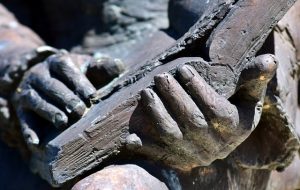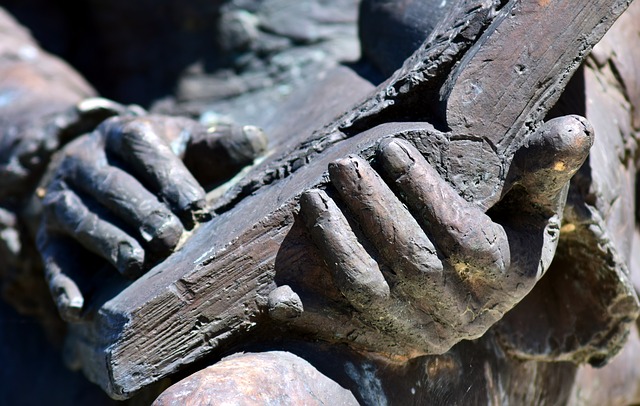Self-Study for Life
 The bigger you grow your island of knowledge, the larger the shoreline of what you don’t know is.[1]
The bigger you grow your island of knowledge, the larger the shoreline of what you don’t know is.[1]
But that shouldn’t stop you from learning. All that means is that there is no end point to your personal growth. The more questions you answer the more, and better questions you create.
I’ll give you an example. When I started as a young man in my career I had a degree in business. I worked in a technology company. This company was full of engineers who acted like their engineering degrees gave them all the answers.
I went back to school at nights and got myself an engineering degree. What I discovered was that they did not have all the answers. They had access to a practical and useful body of knowledge, but it was not a universal set of answers.
The more I learned about calculus and physics, the more I realized how little we know about the universe we live in. It was still a useful learning process. That knowledge of how insignificant and meager our knowledge and our existence is in the grand chaos of the universes did give me a better idea of our place in this world.
I would argue that so did my reading of so much classical literature and my traveling all around the world for work. Each time I gather to myself some parcel of knowledge it doesn’t lead me to definitive answers, but there is some inherent value in it.
These broader studies into the nature of humans led me to understand that there are no definitive answers. The key, the trick is to be ok with that. To be ok with not knowing, and then pick up your tools and learn more anyhow.
Those who profess to have the true answers to the universal questions I don’t trust. They are manipulative reductionists or they are asking you to abdicate your free will to some manifestations of ‘faith’. To believe in something they made up because it’s easier than living with the realization that the universe of our knowledge has no edges.
We have always known this. This is the great dynamic of our human existence.
“And therefore as a stranger give it welcome.
There are more things in heaven and earth, Horatio,
Than are dreamt of in your philosophy.”
I would argue that the successful people in our world are not so much driven to success by hard work, hustle and all those other current pop-culture attributes and actions. I would argue that all success, all great leaps forward, all significant contributions to knowledge comes from curiosity.
Curiosity wins when you get over the fact that there will always be things that are unknowable and commit to learn what can be learned anyhow. And if you commit to a life of learning, regardless of outcome you can transform your life in the here and now.
Great Chris, so how do we do that? Wonderful philosophy, but how do I work that into my life? What’s it look like practically?
I’m glad you asked. Here are some tips and guidelines.
- Make time for self study. This could be 20 minutes or 30 minutes in the morning or in the evening as part of your routine. The important part would be to actually schedule it and do it. Set your timer for 20 minutes and read or study until the time is up. Dedicate that time.
You might say that 20 minutes a days isn’t worth the effort. I have a few crates full of books I’ve read that would argue differently. It’s ok if this doesn’t come naturally. There have been books that I’ve read that I have had to bash my way through 20 minutes at a time over the course of years! I stayed with it because I knew the things I could learn were important.
- Use in-between time as an opportunity to study. With smart phones the tendency these days is to take that standing in line time and use it to surf some social media timeline – which is the learning equivalent of eating potato chips while drinking soda pop.
Instead have a few books or audios or courses queued up and ready to go. You can read books, listen to audios and take courses on that smart phone too you know. If you add up all the driving, wandering, walking and waiting time in your week you’ve got plenty of time for learning stuff.
- Sample things that are outside your comfort zone. Whether these are things from a discipline that you have no domain expertise in or things that outright make you uncomfortable learn broadly.
It is these broad learnings, these horizontal curiosities that enable us to make connections between seemingly unrelated data points. Think of it as trying one different costumes. These broad, seemingly unrelated ideas are the raw material of innovation and creativity.
Don’t get stuck in a genre or domain.
- Listen to your network. One of the cool things about the universal spread of information is that you can crowdsource your study. Many of the interviews of successful people ask, “What books would you recommend?” When you hear 2-3 different people recommending the same book as formative or impactful go get it and read it.
- Try to process what you learn. When you come to a passage that knocks loose some electrons in your brain make a note. Capture that learning. Then process it. Write about it in your journal or share it with someone else and get their opinion.
That picking up and inspecting the thing, the stuff of an idea will change the shoreline of your world.
Those are my thoughts on being a curious self-learner throughout the course of your life. What is the value of having all this knowledge bundled up and bouncing around in your brain? It gives you the raw material to create things. It give you the basis to think critically and effectively.
But, at the end of your long day, curiosity and learning are a reward in themselves.
[1] The actual quote is; “The larger the island of knowledge, the longer the shoreline of wonder.” I hear this often attributed to Ryan Holiday but the official attribution seems to be Ralph W. Stockman a Christian minister famous for hosting a weekly sermon on NBC in the formative years of radio.

